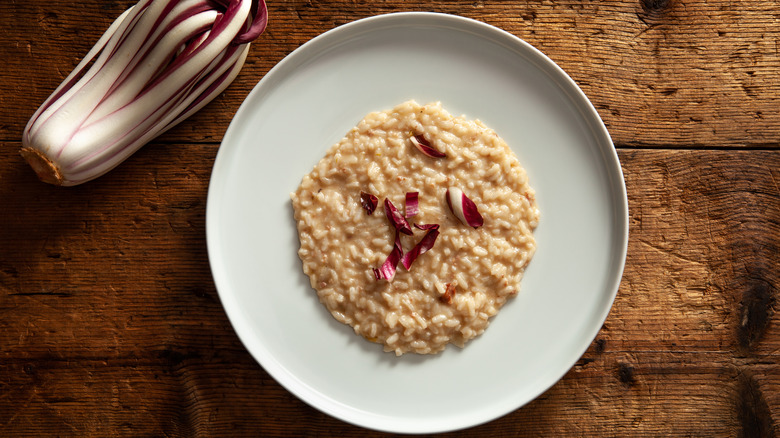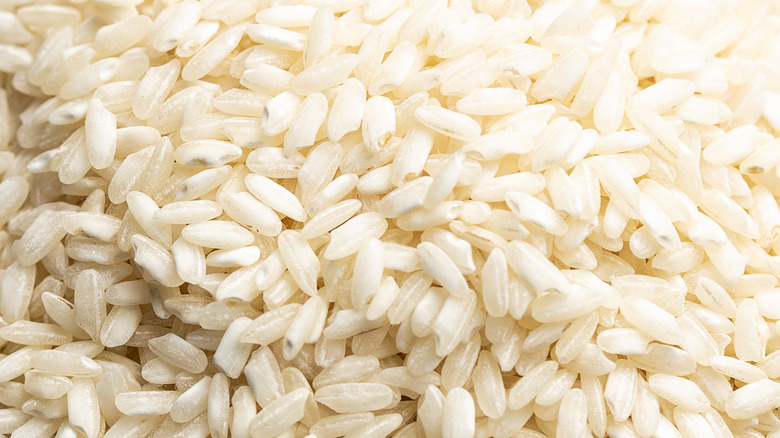Should You Rinse The Rice When Making Risotto?
To rinse or not to rinse? That's a question that plagues the minds of many. While some people swear by the practice, others forgo it completely. Unfortunately, there's no singular answer as to whether grains should or shouldn't be washed. Depending on the type, rinsing rice can be wise — but does that also apply to grains meant for risotto?
Although rice was first introduced to Sicily in the 14th century, Cuisine at Home explains that it wasn't long before cultivation transpired in northern Italy, thanks to favorable growing conditions. Naturally, the success of the commodity paved the way for risotto to become widely popular in regions like Piedmont, Lombardy, and Veneto, as described by Italy Magazine.
Ultra adaptable, Eataly shares that every successful risotto should start by cooking down aromatics, followed by toasting rice, and then deglazing the pan with a splash of wine. After that, ladle-by-ladle, a savory stock should be stirred in until the rice is cooked to al dente.
Though recipes will undoubtedly vary based on location and preference, a non-negotiable is the type of rice that should be used in risotto. According to Great Italian Chefs, short or medium-grain rice such as Arborio, Carnaroli, or Vialone Nano fares well as they best absorb liquid, resulting in the creamiest and dreamiest risotto dishes. That said before the rice hits the pan, should it be rinsed?
Think twice about washing risotto rice
Generally speaking, rinsing rice is more crucial than you might think. From a practical standpoint, Inverse notes that a quick wash can help remove any debris, such as dirt, pebbles, or even bugs. Likewise, this extra step might also help reduce the presence of trace chemicals like arsenic, even if the amounts are very unlikely to pose any threat.
However, Taste shares that the most impressive reason for rinsing is actually because it can improve texture by eliminating some of the rice's starch, which can prevent grains from clumping together. That said, based on the rice recipe at hand, rinsing could make or break the outcome of a dish.
When it comes to risotto, never — we repeat, never! — rinse rice. Since starch is such a fundamental component of the dish, La Cucina Italiana urges against stepping foot near a sink, as washing will simply rid the plump grains of their vital starches. After all, only rice with the highest level of starch can produce the most luscious risotto.
Unsure how to keep risotto rice debris-free and clean without a wash? Beyond buying rice from a reputable vendor, BBC Good Food recommends keeping the rice in a sealed container and storing it in a dry, cool area away from sunlight. This will guarantee that rice stays fresh, so you can continue making amazing risotto or even carbonara arancini, should you be stuck with any leftovers!

